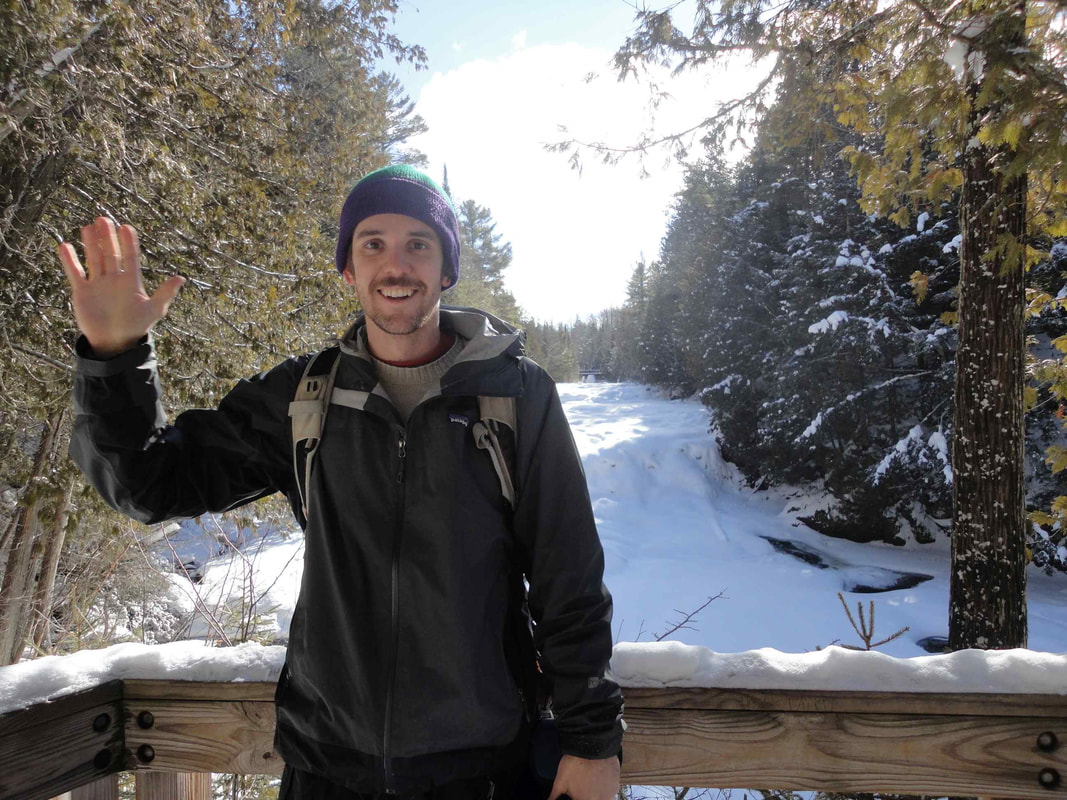Website: https://samzipper.weebly.com/ | Twitter: @ZipperSam
I think of ecohydrology as trying to understand relationships between ecosystems and the water cycle.
What are your undergraduate and graduate degrees in?
I have a B.A. in Geology from Pomona College, and a Ph.D. in Freshwater and Marine Sciences from the University of Wisconsin-Madison.
Freshwater and Marine Sciences is an interdisciplinary program for folks interested in water science, and was great fit for me as a budding ecohydrologist because I could take courses in departments all over campus – civil engineering, geosciences, agronomy, forest & wildlife ecology, zoology, and probably a few more I’m forgetting!
How did you arrive at working in/thinking about ecohydrology?
While we often hear about scientists following their childhood passion straight to a successful career via a series of logical steps, just as many of us – perhaps more – have winding, nonlinear paths.
As an undergraduate at Pomona College, I was an undeclared sophomore trying to decide between Spanish and Art when I took Eric Grosfils’ intro geology course to fulfill my science requirement – or so I thought. The field trips got me hooked, and before I knew it I was a major. While I loved heading up to the Sierras to check out plutons, I gravitated towards hydrogeology for my senior thesis because I had always enjoyed camping by water (rivers, lakes, streams, etc.) and wanted to work on something with clear relevance to society.
I spent the year after graduation working in the Coastal Systems Group at the Woods Hole Oceanographic Institution, collecting and analyzing sediment cores from all over the world to study hurricane histories. However, the major transformative event of my time in Woods Hole was when someone told me you could get paid to go to grad school. No one else in my family had done a graduate degree, so just finding out I wouldn’t have to go into debt to earn one was a big eye opener for me. Even though it seems like common knowledge now that I’ve spent the past 7 years in academia, I still try to mention that grad school is a paid position when I meet with undergraduates or high schoolers, just in case they are like a young Sam!
Following Woods Hole, I mostly rode my bike for the next year, spending a summer (and my savings) biking down the Pacific Coast before moving to New York with some friends, where I worked as a bicycle delivery person for a bakery (subsisting mostly on cookies that broke in transit), played drums (poorly) in a band, and tutored science at a high school in East Harlem while applying to graduate school. I applied to Wisconsin on some last-minute encouragement from an ex-girlfriend and my application bounced around several departments before ending up in the hands of Steve Loheide, who had just got an NSF Water Sustainability and Climate project funded and needed a grad student. This was the first time I heard about ecohydrology (or hydroecology, as Steve likes to call it) as a field, and it was a perfect fit for me – it combined my background in water science with my interests in modern processes that are highly relevant to society. Since then, it’s been all ecohydrology, all the time!
What do you see as an important emerging area of ecohydrology?
Moving forward, it will be important for the ecohydrology community to integrate social dynamics into our research.
Socio-environmental research has emerged separately in ecology (e.g. social-ecological systems) and, more recently, hydrology (socio-hydrology), but I think ecohydrologists are especially well positioned to help understand human-environment interactions – after all, humans are the primary driver of both ecological and hydrological change around the globe. Dieter Gerten made this point nicely a few years ago, and I think the discipline is moving in that direction.
Do you have a favorite ecohydrology paper? Describe/explain.
I think the agricultural water management community has basically been doing “ecohydrology” by another name for about 100 years longer than us hydrologists, and I’ve always had a soft spot for old papers. Hooghoudt (1952) ‘Tile Drainage and Subirrigation’ has some great illustrations, fundamental insights into groundwater-ecosystem interactions, and laid the framework for some of my dissertation research over 60 years later!
What do you do for fun (apart from ecohydrology)?
In my past life, I liked to fix up old bikes and ride them around. Now I have a 3 month old daughter so I spend most of my free time wandering the streets of Victoria, pushing a stroller in a sleep-deprived haze.

 RSS Feed
RSS Feed